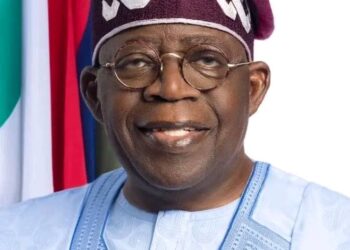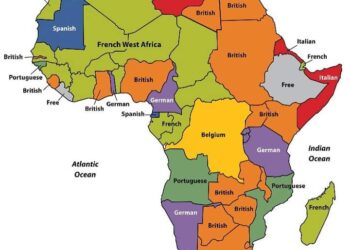The United Nations Children’s Fund (UNICEF) said it was targeting the enrolment of at least one million girls in schools through its School-Based Management Committee (SBMC).
UNICEF’s project coordinator in Kano state, Richard Akanet, disclosed this Tuesday in Kano.
The School Based Management Committee intervention programme is a strategy adopted by state governments of Kano, Bauchi, Zamfara, Niger, Katsina and Sokoto states to reduce the number of out-of-school children. It is supported by the Department for International Development (DFID), under the GEP 3 Project.
Mr Akanet said the SBMC targets improvement in school enrolment, especially for girls, as well as a remarkable decrease in schoolgirls’ dropout.
He also said so far, improvement had been recorded in the UKAID sponsored eight-year programme, which had also succeeded in training 15,300 headteachers in school effectiveness and efficiency.
In addition to this, 1.6 million girls expected to acquire skills for life self-sufficiency while 42,000 primary and Integrated Quranic Schools (IQS) teachers have been trained.
According to the presentation, the benefiting states include Kano, Sokoto, Niger, Zamfara, Katsina, and Bauchi.
Mr Akanet also said the programme, which was expected to end in 2020, had been of benefit to not less than 1.9 million boys through the improvement of teacher quality and school governance.
“From research and investigation, reasons given so far for the non-enrolment into schools in the north include, but not limited to distance of school, which was pegged at 44 per cent as well as opportunity cost and direct cost which are 36 per cent and 26 per cent respectively.
“Socio-economic status has been the main reason behind not being enrolled in school. Since May 2012, UNICEF has been implementing the eight year GEP3 (2012-2020).
“The main reasons given for girls’ dropout are direct cost, which is 29 per cent, no interest; which is 25 per cent and opportunity cost, which is 23 per cent,” he said.
Also speaking on the new UNICEF Basic Education Strategy 2019-2030, UNICEF Education Specialist, Muntaka Muktar, said the Integrated Quranic School (IQS) has been identified as an intervention capable of ensuring that all children, irrespective of their location in Kano state have the benefit of participating in western education.
He said the Integrated Quranic School, will afford children to be in their immediate learning environment, ”the natural Quranic environment”, while western curriculum of mathematics, English language and other core subjects is infused in the IQS programme.
Mr Muktar said the completion rate of primary education in Kano state is 49 per cent and numbers of girls transmitting to lower secondary school is 47 per cent while only 50.4 per cent of male transit to secondary schools.
“Also, only 63.0 per cent complete primary education among which only 57.7 per cent are female and 50.4 per cent are male,” he said.
Also speaking, the Director Social Mobilisation, Universal Basic Education Commission (UBEC), Bello Kagara, said N2.7 billion would be spent on the rehabilitation of 2,505 selected primary schools across the country.
He said each of the benefiting schools would receive a first disbursement of 75 per cent payment of the total amount allocated to it, while the remaining 25 per cent would be after the commission confirms its satisfaction with the utilisation of monies released earlier.
”For the pilot phase, under the macro project, we are supporting 15 schools per state, including the FCT. For the micro project, we are supporting 50 schools per state. In special projects, we are supporting 120 of such,” he said.
Mr Kagara said the SBMC committee must pay 10 per cent of the total amount for project execution before they can access the 75 per cent.
He lamented that weak funding and participation of key actors are some of the major challenges bedevilling quality and increased access to education in the country.
“Funding and participation of key actors and funding of education in Nigeria is weak and if not weak, inadequate.
“Basic education is not all about the effort put at the centre or the state actors. You can do or say whatever you want but as far as it doesn’t transcend to the community or school level, you are wasting your time,” he said.



